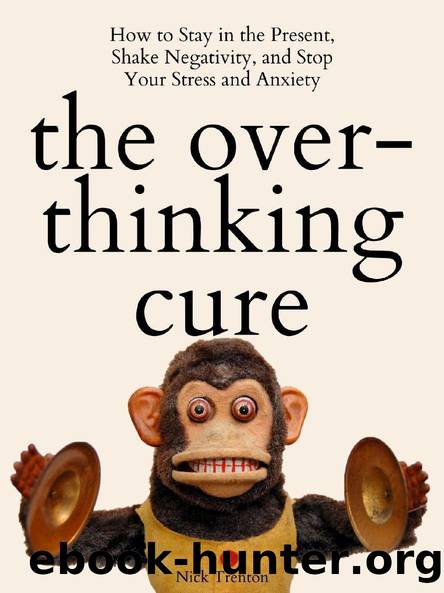The Overthinking Cure by Unknown

Author:Unknown
Language: eng
Format: epub
ISBN: 0000000000000
Published: 2021-11-25T15:55:48+00:00
Technique 1: Socratic Questioning
Cognitive biases are unconscious and unchallenged. Our work is to make them conscious and challenge them! One way to do this is to be curious and ask questions in the style of the famous philosopher Socrates, who used a simple technique to approach truth: the humble question. Hereâs an example.
âAll women are gold-diggers.â
âReally? What evidence do you have?â
âWell, there was Angela back in 1992 . . .â
âDo you have any other evidence?â
âWell, not direct evidence, no. But everyone knows women are like this.â
âIs that really true, though? Everyone? Is that a thought based on facts or more on your feelings?â
âWell, I guess it is based a little on my feelings.â
âCould you be viewing the situation in absolute terms when a more nuanced approach would be more realistic?â
âOkay, yes, maybe not all women are like that. Some are not, thatâs true . . .â
And so on. Here, you refuse to take your own word for it and question every assumption and expectation. You ask, is this thought really true? Why do you think so? Is this rational? Where does this thought come from? Why? What are you not looking at? It sounds basic, but the fact is that many of us rush headlong into a belief without taking a second to ask whether we have any evidence for that belief.
Pretend youâre an alien with no preferences either way, and just become curious: what do you actually know here? What is fact and what is emotion? Are you making guesses or assumptions or unfounded inferences? Could you be misinterpreting the evidence somehow? Simply become curious about other ways you might interpret the situation, and how valid your current position is. Are you sticking to your story simply because youâve always done so, from habit? Often, we carry on with a faulty thought because it confirms beliefs and conclusions we already have about ourselves.
Our inner narrative and self-talk can be so persistent we simply start to accept it. But the Socratic technique is about examining your own validity and perceptions from scratch. You want to encourage yourself to think more broadly, more deeply, and more rationally. In essence, you are using pointed questions to uncover your own biases, blind spots, and faulty logic. Youâre not merely disagreeing with yourself for the fun of it but trying to challenge your own lazy or automatic thinkingâafter all, entertaining other possibilities is the only real way you can start to do things differently!
Download
This site does not store any files on its server. We only index and link to content provided by other sites. Please contact the content providers to delete copyright contents if any and email us, we'll remove relevant links or contents immediately.
Should I Stay or Should I Go? by Ramani Durvasula(7641)
Why We Sleep: Unlocking the Power of Sleep and Dreams by Matthew Walker(6686)
Fear by Osho(4723)
Flow by Mihaly Csikszentmihalyi(4671)
Rising Strong by Brene Brown(4435)
Why We Sleep by Matthew Walker(4421)
The Hacking of the American Mind by Robert H. Lustig(4356)
How to Change Your Mind by Michael Pollan(4340)
Too Much and Not the Mood by Durga Chew-Bose(4324)
Lost Connections by Johann Hari(4164)
He's Just Not That Into You by Greg Behrendt & Liz Tuccillo(3873)
Evolve Your Brain by Joe Dispenza(3653)
The Courage to Be Disliked by Ichiro Kishimi & Fumitake Koga(3473)
Crazy Is My Superpower by A.J. Mendez Brooks(3380)
In Cold Blood by Truman Capote(3366)
Resisting Happiness by Matthew Kelly(3331)
What If This Were Enough? by Heather Havrilesky(3298)
The Book of Human Emotions by Tiffany Watt Smith(3284)
Descartes' Error by Antonio Damasio(3263)
